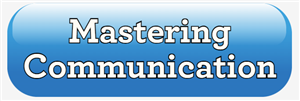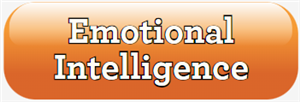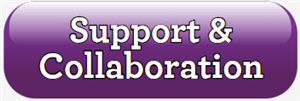-
Workplace Culture
These courses encompass the shared values, behaviors, and practices that shape the work environment. Fostering effective communication, conflict resolution, emotional intelligence, and inclusivity contributes to a supportive and engaging workplace.
To Receive Credit
To receive credit for completing a course, you'll need to fill out the Follow Up Form. Your responses on this form will be shared with your direct supervisor. Please note that, at this time, these courses will not be added to your official transcript.
Communication
-
Communication Topics
Communication Style
Source: Youtube
Length: 8 minutes
Description: This video outlines the strengths and weaknesses of various communication styles and demonstrates how to use these styles to effectively tailor messages for diverse audiences.
Think Fast, Talk Smart: Communication Techniques
Source: Youtube
Length: 59 minutes
Description: Matt Abrahams, a Stanford GSB lecturer and host of the podcast "Think Fast, Talk Smart," presents essential strategies for improving spontaneous communication in professional contexts. Drawing on practical examples and actionable insights, he equips viewers with the tools to manage anxiety and communicate more effectively in high-pressure situations.
Effective Communication Skills
Source: Youtube
Length: 44 minutes
Description: Learn about concise, clear, and confident communication.
Public Speaking Training: Imrpove Your Presentation Skills
Source: Youtube
Length: 55 minutes
Description: This educational documentary delves into the essential skills for effective public speaking and presentation. Featuring insights from leading professional speakers and communication experts worldwide, it offers valuable techniques and strategies to enhance your speaking abilities.
Conflict Resolution Topics
-
Conflict Resolution
Conflict Resolution Skills
Click here to view the article
Source: Conflict Resolution Network
Length: 20 minute read
Description: Equips participants with strategies to resolve conflicts effectively by fostering empathy, creative problem-solving, cooperative communication, and emotional management.
Using Emotional Intelligence to Manage Conflict
Source: Youtube
Length: 23 minutes
Description: This webinar will provide you some helpful information and tactics to lessen conflict and provide more productive situations.
How to Prevent Conflict at Work with 6 Strategies: Build a Culture of Open Communication
Source: Youtube
Length: 12 minutes
Description: Discover how to foster a positive work environment where everyone feels safe to speak up, share ideas, and address concerns early on. Boost productivity, morale, and team cohesion with these actionable tips.
Micro-Agressions
Source: DPS Skills
Length: 3 hours
Description: Micro-aggressions are subtle yet offensive comments or actions directed at a non-dominant group that are often unintentional and can unconsciously reinforce stereotypes. This workshop provides learners an opportunity to explore micro-aggressions at a deeper level through engaging discussions and activities, and provides tools to help you spot and counteract them in your everyday life.
Content Accordion
-
Emotional Intelligence
What is Emotional Intelligence and How Can You Develop It? (Goleman's 5 Component Model)
Source: Youtube
Length: 6 minutes
Description: Emotional intelligence (EQ) is the ability to recognize, understand, and manage emotions in ourselves and others. While the concept dates back to the 1960s, it gained prominence in 1995 with Daniel Goleman's best-selling book, Emotional Intelligence, emphasizing its role in effective communication and strong relationships.
Leading with EQ
Source: DPS Skills
Length: 3 hours
Description: Emotional intelligence (EQ) is the ability to recognize and manage emotions to enhance our ability to build relationships and strengthen our capacity to make good decisions. Learners will explore theories and models of EQ, as well as the physiology of emotions. We will learn how to identify "triggers" and apply tools to successfully manage interactions with others.
12 Traits Emotionally Intelligent People Share (And Why You Can Learn Them)
Source: Big Think
Length: 12 minutes
Description: Emotional intelligence (EQ), popularized by Daniel Goleman's 1995 book, distinguishes top performers and leaders by being a developable skill that enhances personal growth, relationships, and overall success, unlike static IQ.
Support & Collaboration
-
Building a Supportive & Collaborative Culture
Five Action Steps to a Better More Positive Work Culture
Source: Youtube
Length: 59 minutes
Description: Happy, engaged employees lead to better performance and lower turnover, but many companies struggle to achieve a positive workplace culture due to its elusive nature and lack of clear metrics. Learn actionable steps to build a healthier, more effective workplace culture.
Cultivating Collaboration: Don't Be So Defensive!
Source: Youtube
Length: 15 minutes
Description: Ever see red? It's called being defensive, and turns out, it is the single greatest inhibitor to true collaboration. Jim Tamm shares years of experience in getting out of the red zone and cultivating a "green zone" attitude.
How to Fall In Love with Collaboration: Investing in our Relationships
Source: Youtube
Length: 18 minutes
Description: In this talk, Chris Bramley explores the origins and challenges of collaboration, offering insights into how we can improve communication, engagement, and fulfillment in both business and society by leveraging our natural collaborative abilities.
Fun & Engagement
-
Creating a Fun & Engagement Workplace
Leveraging the Power of Fun at Work
Source: Youtube
Length: 15 minutes
Description: Discover how incorporating fun into the workplace can enhance team strength and productivity, as Robyn Schopp, renowned for her ability to infuse enjoyment into any task, shares her insights.
How Great Companies Create Fun in the Workplace
Click here to view the article
Source: Insights
Length: 5 minute read
Description: The article highlights how integrating fun into the workplace—tailored to individual preferences and avoiding mandatory participation—can boost employee well-being, engagement, and productivity, with strategies ranging from personalized perks to fostering a supportive culture.
Contact
-
Office of Operations
1860 Lincoln St.
Denver, CO 80203
Trena Marsal
Chief of OperationsShelby Wosick
Executive Assistant
Shelby_Wosick@dpsk12.net

















